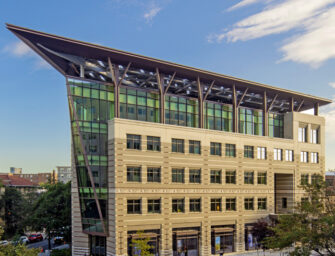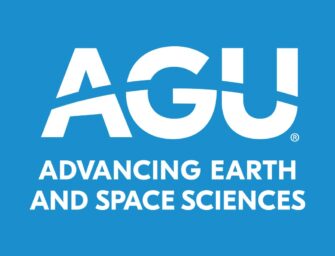All in this Together: Protecting the Global Scientific Enterprise
AGU is a global community. Across 6 continents, in 200 countries and regions, we connect with one another, championing research, discovery, and solutions. Borders, languages, time zones, and customs might zig zag their way across our membership map, but science remains our guiding star and our uniting purpose. It’s even woven into an official AGU position statement: the Earth and space sciences are borderless and their data, a world heritage.
Since 20 January, the actions of the U.S. administration have clearly had a devastating effect on scientists stateside. Through mass firings across multiple federal agencies, careless dismantling of environmental enforcements, dangerous cutoff of critical funding, and drastic reductions in resources that soften natural disaster preparedness, science is suffering.
The current U.S. administration’s withdrawal from the Paris Agreement, the defunding and hollowing out of the United States Agency for International Development (USAID), weakening capacities to ensure food safety and disease prevention, the removal of funding for the Intergovernmental Panel on Climate Change (IPCC) Technical Support Unit for Working Group 3, and lack of clear U.S. participation in the IPCC nomination process have left a vacuum of leadership and damaged relations with partners around the world.
Preventing U.S. participation on international committees inhibits valuable insights, perspectives and dialogue from all corners of our world. Global collaboration is the oxygen for effective, productive science.
The U.S. Department of State and the Office of Personal Management recently sent questionnaires to researchers around the world who receive funding from the U.S. government, inquiring about their institutions’ links to foreign governments and whether their research complies with the current administration’s ideology on gender identity and diversity and inclusivity practices.
Scientists from Australia, New Zealand, the European Union, the United Kingdom and Canada were required to respond within 48 hours to more than 30 questions so that the United States could make “program determinations.”
This action is not rooted in science or scholarship. It trades in fear and intimidation. Threatening to pull critical support unless research is bent to a specific ideology does not create good science, nor does it foster an environment where scientists and their work can thrive.
But it’s not just intimidation. Real, working projects conducted with or connected to research institutions outside the United States are losing funding. A slippery slope of alarming events has been unleashed on a global scale, with lack of funding leading to post doc positions being eliminated, program acceptances being recalled or canceled, and student visas being denied.
We live in an interconnected world. Silos do not exist, especially for our global scientific community. And that is on full display as U.S. policy decisions reverberate internationally. But there is hope and action. AGU is creating multiple pathways to ensure our enterprise remains strong, global, and growing.
We are proud of our recent collaboration with the U.S. Academic Alliance for the IPCC, creating a new application portal for U.S. researchers to self-nominate as experts, authors, and review editors for the Intergovernmental Panel on Climate Change Seventh Assessment Report. Hundreds took advantage of this vital offering, and we are hopeful that U.S. expertise will continue to contribute to such a critical document. This novel approach to dismantling roadblocks in sharing science is even more critical in light of the U.S. cancelation of its support for IPCC’s Technical Support Unit, which is key to understanding the breadth of data and impacts.
There are other steps we can and are taking. The vacuum created by the U.S. withdrawal from the Paris Agreement means AGU’s observer status to the United Nations Convention on Climate Change (UNFCCC) is more crucial than ever. This June in Bonn, Germany, as the UNFCC convenes for SB 62, AGU will be there as a cogent force for climate action and funding commitments.
We are continuing to offer membership fee waivers to those affected by job loss around the world. AGU is also gathering stories of impact to share with leaders and policy makers. We particularly want to hear from AGU members outside the United States to make the critical case that threats to the scientific enterprise are interconnected and global. Share your story here.
Finally, there is strength in numbers. AGU stands shoulder to shoulder with our geoscience societies partners spanning the globe that are answering the call. Throughout this year, AGU will be front and center at our sibling society gatherings, including the European Geosciences Union (EGU), the Japan Geoscience Union (JpGU), the Asia Oceania Geosciences Society (AOGS), and Goldschmidt. We look forward to further connecting with members and colleagues there to share information and craft strategy together.
AGU is committed to a global scientific enterprise where everyone has access to the free flow of ideas with support systems and resources that grow and foster a spirit of collaboration—a true community that never knows a border or barrier.


